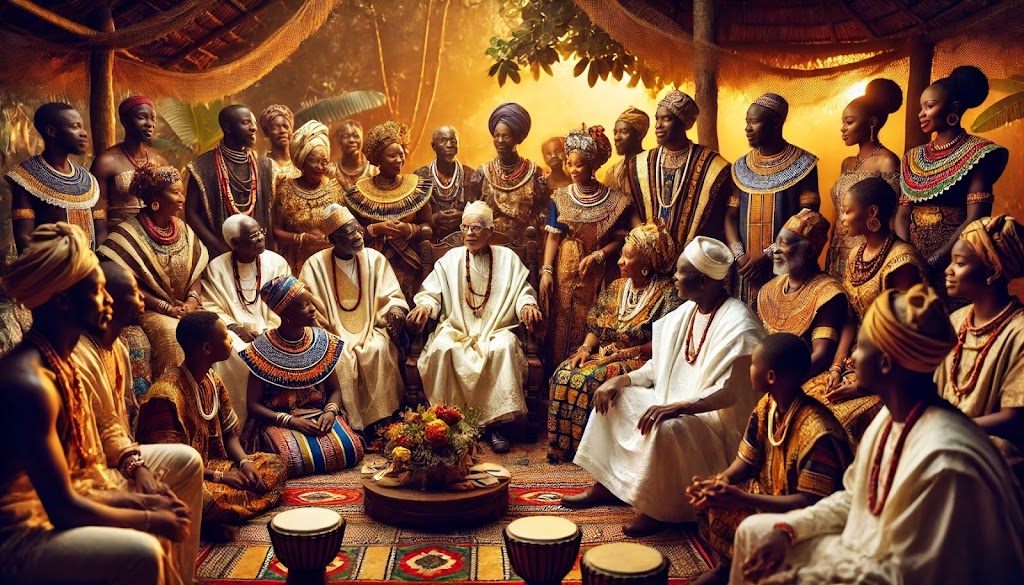The Class and Respect Issues Among the Africans

Class and respect dynamics within African societies and the African diaspora represent an intricate interplay of history, culture, and socio-economic structures. These issues are deeply rooted in pre-colonial traditions, colonial disruptions, and modern global influences. Understanding how class stratification and respect norms have evolved within African communities requires examining their historical context, cultural manifestations, and potential pathways forward. Historical Roots of Class and Respect in African Societies Historically, African societies have always exhibited forms of stratification, though these were largely fluid and communal. In many pre-colonial African cultures, respect was tied to age, wisdom, and communal contributions rather than material wealth or rigid class divisions. For example, elders were revered as custodians of knowledge and decision-makers within many African tribes, a value system that still persists in parts of the continent today (Mbiti, 1990). Colonialism profoundly disrupted these traditional systems. European powers imposed exploitative economic systems and hierarchical social orders that undermined indigenous values. The introduction of cash economies and land ownership laws created stark divides between the elite, often educated and European-aligned Africans, and the rest of the population. These colonial class systems, supported by divisive governance tactics, solidified a culture of economic disparity and social stratification (Rodney, 1972). Manifestations of Class and Respect Issues Today In contemporary African societies, class and respect issues are deeply intertwined. Economic inequality, a legacy of both colonial exploitation and neo-colonial structures, exacerbates class tensions. Wealth, often concentrated in urban centers or among those connected to political elites, has become a significant determinant of respect in many communities. This shift represents a departure from traditional respect systems based on character, age, or community contributions. Intra-community Dynamics Within families and local communities, respect is frequently tied to material success. For example, younger family members who achieve financial stability may be expected to command respect from elders, challenging traditional age-based hierarchies. This tension is particularly evident in the African diaspora, where western individualism sometimes clashes with African collectivist values. Gender and Intersectionality Gender plays a critical role in respect and class dynamics. Patriarchal traditions often confer respect based on male authority, while women’s contributions—whether economic or domestic—may be undervalued. However, modern movements advocating for gender equality are challenging these norms. For instance, women-led businesses and organizations are reshaping respect dynamics by emphasizing merit over tradition. Diaspora Perspectives The African diaspora adds another layer of complexity. Africans living outside the continent often face external class and racial hierarchies, which intersect with internal respect norms. For instance, African immigrants in Western countries may experience a loss of social status due to systemic racism, even as they navigate respect expectations within their own communities. The Cultural Significance of Respect Respect is a cornerstone of African cultures, deeply embedded in language, customs, and social interactions. In many African societies, greetings reflect hierarchical respect. For instance, in Yoruba culture, younger individuals prostrate or kneel to greet elders, symbolizing deference and honor (Fasoranti, 2018). Similarly, Zulu culture emphasizes the importance of ubuntu—a philosophy of mutual respect and interconnectedness. However, globalization and modernity are challenging these norms. The rise of individualism, consumerism, and digital cultures has diluted traditional respect systems. Social media, for example, often amplifies materialism, with wealthier individuals gaining admiration regardless of their ethical or communal contributions. Bridging Class Divides and Fostering Respect Addressing class and respect issues requires a multifaceted approach: 1. Education and Awareness: Promoting education about the historical roots of class and respect systems can help communities critically examine and reshape these dynamics. For example, integrating African philosophy and history into school curricula can foster a deeper appreciation for traditional values. 2. Economic Empowerment: Tackling economic disparities is essential for reducing class-based tensions. Programs that support entrepreneurship, especially among marginalized groups, can create pathways to equitable respect. 3. Cultural Revitalization: Encouraging a return to respect systems based on character and community contributions can counteract materialistic values. Cultural festivals, storytelling, and intergenerational dialogues are effective tools for this purpose. 4. Diaspora Engagement: Bridging gaps between African communities on the continent and in the diaspora can foster solidarity. Initiatives such as exchange programs, pan-African cultural events, and advocacy for racial justice can unite Africans globally. Conclusion The interplay of class and respect issues among African communities reflects a complex legacy of history, culture, and contemporary realities. While colonialism and globalization have reshaped traditional norms, there is an opportunity to reclaim and adapt these values to foster unity and equity. By addressing economic disparities, promoting cultural pride, and encouraging intergenerational dialogue, African societies can navigate these challenges and build a future where respect transcends class divides. References 1. Fasoranti, M. (2018). Yoruba Culture and Traditions: A Handbook. Ibadan University Press. 2. Mbiti, J. (1990). African Religions and Philosophy. Heinemann. 3. Rodney, W. (1972). How Europe Underdeveloped Africa. Bogle-L’Ouverture Publications. 4. Ndlovu-Gatsheni, S. J. (2013). Coloniality of Power in Postcolonial Africa: Myths of Decolonization. CODESRIA.
Falsehood,Deceptions , Lies and the Social Parameters informing Corruption and Development in Sierra Leone

Falsehoods, deceptions, lies, and the social parameters informing corruption significantly undermine stability and development in Sierra Leone. These factors erode public trust, weaken institutions, and impede socioeconomic progress. The following analysis explores these impacts, supported by scholarly references in APA style. Erosion of Trust and Institutional Integrity The prevalence of corruption in Sierra Leone has deep historical roots, contributing to the nation’s fragility and instability. Abdulai and Kubbe (2023) examine the diverse facets of corruption, noting that it permeates various aspects of society and governance, thereby hindering sustainable development efforts. Socio-Cultural Norms and Corruption Societal perceptions and traditional practices can either deter or enhance acts of corruption. Jamboria (2023) discusses how social thinking and perceptions in Sierra Leone influence corrupt behaviors, emphasizing the need for a consensus within society to curb corruption for continued stability and development. Impact on Socio-Economic Development Corruption adversely affects income distribution, investment, government budgets, and economic reforms. Saidu (2023) highlights that corruption increases inequality, decreases accountability, and produces rising frustration among citizens, thereby hindering socio-economic development in Sierra Leone. Undermining Governance and Service Delivery Corruption within local government structures leads to poor service delivery and erodes public confidence in governance. Koroma et al. (2023) highlight that corruption significantly undermines the efficiency of local administrations, leading to poor service delivery and eroding public confidence in governance structures. Conclusion Falsehoods, deceptions, lies, and the social parameters informing corruption have multifaceted adverse effects on Sierra Leone’s stability and development. They erode trust in institutions, exacerbate corruption, impede development efforts, undermine social cohesion, and weaken the rule of law. Addressing these challenges requires a concerted effort to promote transparency, strengthen institutional frameworks, and enhance media literacy among the populace. References Abdulai, E. S., & Kubbe, I. (2023). The Diverse Facets of Corruption in Sierra Leone. Springer. Springer Link Jamboria, M. B. J. (2023). Social Parameters of Corruption and Status in Sierra Leone: How Our Social Thinking and Perceptions Enhance or Deter Acts of Corruption. In E. S. Abdulai & I. Kubbe (Eds.), The Diverse Facets of Corruption in Sierra Leone (pp. 73-89). Springer. Springer Link Saidu, F. (2023). The Impact of Corruption on the Socio-Economic Development of Sierra Leone: A Case Study of Bo City. International Journal of Scientific Development and Research. GSSRR Koroma, S. M., Yusuf, M., Dauda, E., & Gando, J. G. T. (2023). The Effects of Corruption on Local Government Service Delivery in Sierra Leone: The Case of Bonthe District Council. International Journal of Scientific Development and Research.



